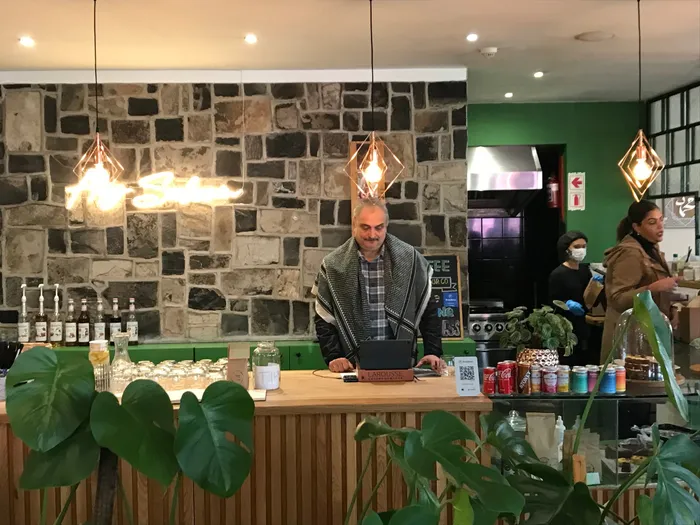Businesses battle impact of blackouts

Against The Grain coffee shop manager, Yusuf Abed, says that load shedding is hurting his business.
Compromised, devastated, frustrated.
These are some of the words Atlantic Seaboard business owners used to describe how the felt about load-shedding.
Eskom introduced this practice as far back as 2007 in an effort to manager imbalances between the demand for and availability of electricity.
While South Africans have become pretty much accustomed to Stage 4 blackouts, the embattled power supplier upped load shedding to Stage 6 last week, leaving some areas in the dark for as long as 4.5 hours. In most cases, however, City of Cape Town customers were spared this, but still had to contend with Stage 4 outages.
“Our coffee machine does not operate during load-shedding and that’s central to our business, serving coffee with our koesisters, for breakfast and with other foods, so it’s frustrating, this load-shedding,” said Yusuf Abed, the manager of Against The Grain (ATG) restaurant in Bo-Kaap.
“We have a gas stove so we can prepare meals on that stove and we can offer our customers tea, but not coffee. We have looked into solar panels but that is expensive. We have looked at generators and inverters but these things are costly. This (load-shedding) is devastating to our business,” he said.
The owner of The Duchess of Wisbeach restaurant in Sea Point, Theresa Beukes, said they had 120 people at their restaurant last Friday night and despite having installed an inverter, found the task demanding.
“Corruption is ruining this country. We have a shocking value system in this country and everyone is suffering. Running a restaurant is extremely hard and very expensive,” said Ms Beukes.
“The inverter system cost me R150 000 but it only works for two hours so serving clients is a tough task. The extraction fan uses the most electricity and we have to manage the kitchen sensibly so it’s a challenging task,” she said.
Costa Peroglou, the owner of Cozco cafe and deli in Sea Point, said having a generator or inverter was not always the solution when it came to load-shedding.
“People think getting an inverter or generator is an easy solution (but) there are costs associated with these systems and there are laws surrounding the installation of generators. You have to consider the laws around fire, noise, insurance, pollution, and if you go for an inverter kit that also costs money,” said Mr Peroglou.
“If you are an early morning coffee spot and you not 100% rigged up with sufficient power then you could lose an entire day’s trade.
“And if you try a secondary menu to please the people then it’s a compromise as well, maybe there is no coffee on the menu, or you can’t roast potatoes and you can’t use the microwave. Everything is compromised,” he said.
Moenier Davids, owner of the Bo-Kaap Deli, has a generator, but said load-shedding was killing small businesses.
“It’s very challenging. We face crime, vagrants and then you have this (load-shedding). I just spent R3000 on load-shedding globes. These globes save power and go on when load shedding kicks in so that we won’t sit in darkness,” said Mr Davids.
“Fortunately customers understand what happens and our generator is linked to the coffee machine and to the wi-fi so business can continue. But it’s not ideal because it (generator) makes so much noise,” he added.
